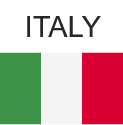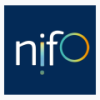
National Interoperability Framework
The National Interoperability Framework (NIF) is a set of standards, policies, and guidelines that ensure that information and communication technology (ICT) systems can communicate and share data seamlessly. It promotes the development of interoperable systems that facilitate data exchange and collaboration between different organizations and levels of government. The NIF provides a common language and a framework for ensuring that ICT solutions are compatible, secure, and reliable, which enhances the efficiency of public services and improves citizen outcomes.
IT National Interoperability Framework Year:2021 | The new framework aims to facilitate the creation of new user-centric and mobile first, digital public services based secure and interoperable REST APIs. It is meant to address both technological and organisational issues, and in particular the outstanding challenge of data sharing among public agencies. |
Good Practices
This section provides examples at the national level in line with a selection of different thematic areas of the European Interoperability Framework (EIF). Further initiatives and good practices are available in the country’s Digital Public Administration Factsheet.
Italy engages in the development of projects using opensource technology. Additionally, the country's regulatory framework necessitates a thorough comparison of features and costs, taking into account the specific requirements of each project, for both open and closed-source solutions. Based on Article 68 of Digital Administration Code, public administrations are required to carry out a comparative assessment of the different solutions available on the basis of the following criteria:
(a) overall cost of the programme or solution as the cost of purchase, implementation, maintenance and support;
(b) level of use of open data formats and interfaces as well as of standards capable of ensuring interoperability and application cooperation between the different IT systems of the public administration;
(c) supplier's guarantees with regard to security levels, compliance with personal data protection regulations, service levels taking into account the type of software acquired.
Where the comparative technical and economic assessment shows that it is impossible to access solutions already available within the public administration or free software or open source software, suitable for the needs to be satisfied, the acquisition of proprietary computer programmes by means of a user licence is allowed.
In Italy, regulations have been put in place to mandate a user-centric approach in the development of new digital services or update of existing ones. This includes a mandate to involve relevant stakeholders during the design process, to prototype and test with the users if the solution proposed properly responds to user needs. See Linee guida di design per i siti internet e i servizi digitali della PA". On a practical level, a series of resources available at designers.italia.it, referenced in the law, help each single public entity in carrying out design processes, step-by-step, and to reuse as much as possible existing user-centered design patterns.
Italy has a policy which establishes a long-term preservation of information regulated by the national regulations and guidelines adopted and published by the Agendy for Digital Italy (AgID). More information can also be found at the following link.
National guidelines mandate the use of semantic material to document and develop APIs. In this context, Italy developed the National Data Catalogue for semantic interoperability that encourages the reuse of semantic resources such as ontologies, controlled vocabularies, and data schemas, fostering the creation of semantically interoperable services. A registry linked to the INSPIRE framework is also available at the following link.
Article 71 of the Digital Administration Code mandates the following stipulations:
Section 2) evaluate the anticipated impacts of ICT on stakeholders;
Section 4) guarantee that new legislative measures align with existing initiatives at national, EU, or international levels;
Section 5) formulate new processes and procedures as specified in the legislative proposal;
Section 6) uphold compliance with data protection standards.
As stated in Article 52 of the Digital Administration Code, in business processes and procedures and development of new information systems, data generated and managed in the execution of public contracts must be available as open data. Activities aimed at enabling telematics access to and reuse of public administration data are relevant in the performance evaluation procedures of public managers. Moreover, in the National Guidelines on open data and re-use of public sector information, requirements and recommendations on open data and its reuse and integration have been defined.

